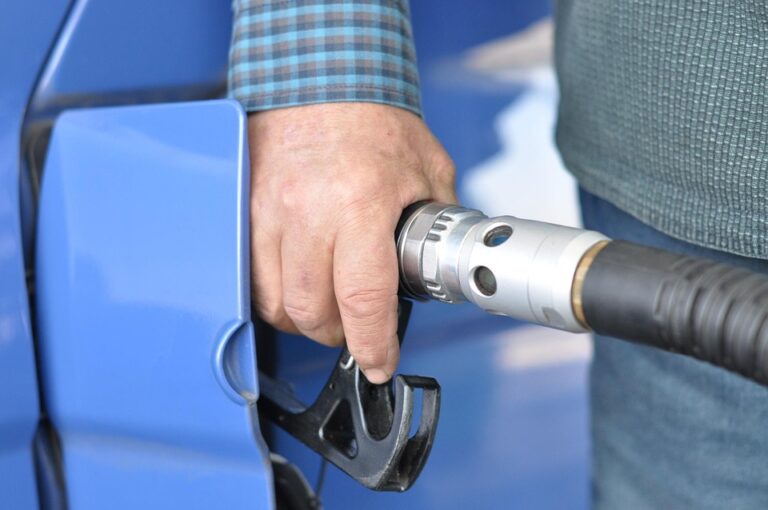Fuel Efficiency Tips: From Maintenance to Driving Habits for Every Season
Maximizing fuel efficiency is a crucial goal for any driver, whether you rely on your vehicle for daily commutes or occasional road trips. With fuel prices fluctuating and environmental awareness increasing, understanding the ways to improve MPG (miles per gallon) can save you money while reducing your carbon footprint. Below, we explore practical fuel efficiency tips that span from seasonal vehicle maintenance to adjustments in your driving habits.
Seasonal Vehicle Maintenance for Optimal Fuel Efficiency
Spring: Tune-Up Time
As winter thaws, it’s time to ensure your vehicle is ready for the warmer months. A comprehensive tune-up can lead to improved fuel efficiency.
- Check the Air Filter: A clean air filter can improve engine performance and fuel efficiency. Spring is a perfect time to check and replace it if necessary.
- Oil Change: Regular oil changes maintain optimal engine function. Use the manufacturer-recommended oil grade to keep your engine running smoothly.
- Tire Maintenance: Ensure your tires are properly inflated and rotated. Under-inflated tires can decrease efficiency by impacting traction and increasing rolling resistance.
Summer: Stay Cool Efficiently
Hot months can affect vehicle performance. Here are some tips to keep fuel consumption low:
- Use Air Conditioning Wisely: While air conditioning is a necessity in the summer, running it excessively can lead to increased fuel consumption. Consider using the vehicle’s ventilation system instead when driving at lower speeds.
- Lighten the Load: Remove unnecessary items from your vehicle to decrease weight. Extra pounds decrease fuel efficiency.
Fall: Preparation for Winter
As temperatures drop, preparing your vehicle is essential for maintaining efficiency.
- Battery Check: Cold weather can reduce battery efficiency. Ensure your battery is in good condition, as a weak battery might drain other components like your fuel system.
- Antifreeze Levels: Keeping the right level of antifreeze helps prevent overheating and protects engine elements, indirectly supporting fuel efficiency.
Winter: Embrace Good Practices
Driving practices change in winter, and so should your approach to fuel efficiency.
- Warm Up Your Engine Wisely: While it’s important to warm up your engine, avoid excessive idling. Instead, drive gently to allow the engine to reach optimal operating temperature efficiently.
- Use Winter Tires: Although they can be more fuel-efficient due to better traction, ensure they are well inflated to mitigate increased rolling resistance.
Adjusting Driving Habits for Improved Efficiency
Beyond regular vehicle maintenance, certain driving practices can dramatically affect your fuel efficiency.
Smooth Driving is Key
- Maintain Consistent Speed: This minimizes the need to accelerate frequently, which can consume more fuel. Use cruise control on highways to maintain steady speed.
- Accelerate Gently: Quick starts and hard braking can waste fuel. Instead, accelerate smoothly and anticipate stops early.
Pay Attention to Speed Limits
Driving at optimal speeds can enhance fuel efficiency:
- Moderate Speeds: Most vehicles achieve optimum fuel efficiency between 45-65 mph. Speeding not only increases fuel consumption significantly but can also put you at risk for accidents.
Reduce Excessive Idling
Idling burns fuel without moving your vehicle. Turn off your engine when parked or waiting. Newer vehicles typically use less fuel when turning off and restarting compared to idling for extended periods.
Fuel Choices Matter
Choose Wisely
Selecting the right type of fuel can also impact efficiency:
- Stick to Recommended Fuel Types: Always use the fuel type recommended by the manufacturer. Higher-octane fuels are often unnecessary for vehicles designed for regular gasoline.
- Consider Ethanol Volumes: Fuel with lower ethanol blends can provide better fuel economy; verify compatibility with your vehicle to avoid damage.
Fuel Up Strategically
- Refuel When Cooler: Fuel is denser when cooler. Fill your tank early in the morning or late in the evening to get the most for your money.
Additional Tips for Enhanced Fuel Efficiency
- Plan Your Routes: Use navigation tools to avoid traffic congestion. Shorter, more efficient routes save time and fuel.
- Carpooling and Ride-Sharing: Sharing rides can significantly reduce fuel consumption per person. Consider joining a carpool for your daily commute.
Conclusion: Take Charge of Your Fuel Efficiency
Improving fuel efficiency doesn’t have to be an uphill battle. By implementing regular seasonal maintenance and adopting specific driving habits, you can save money at the pump and drive more sustainably. Each small change contributes to a larger impact, benefitting both your wallet and the environment. Whether it’s taking a few minutes to check your tire pressure or adjusting your driving style, implementing these fuel efficiency tips year-round can lead to significant benefits.
Ready to make a change? Start today by applying these tips, and see how small adjustments can lead to impressive savings! For more in-depth articles on automotive trends and useful tips, visit buzzo.live.


